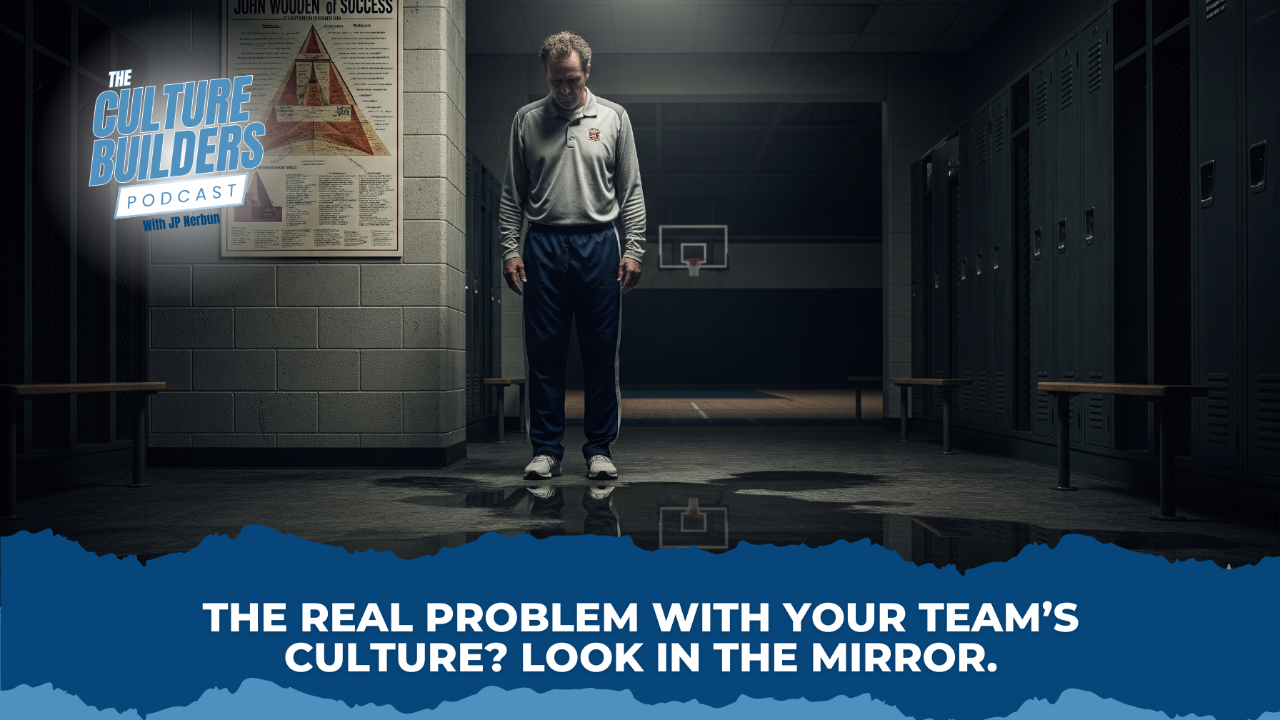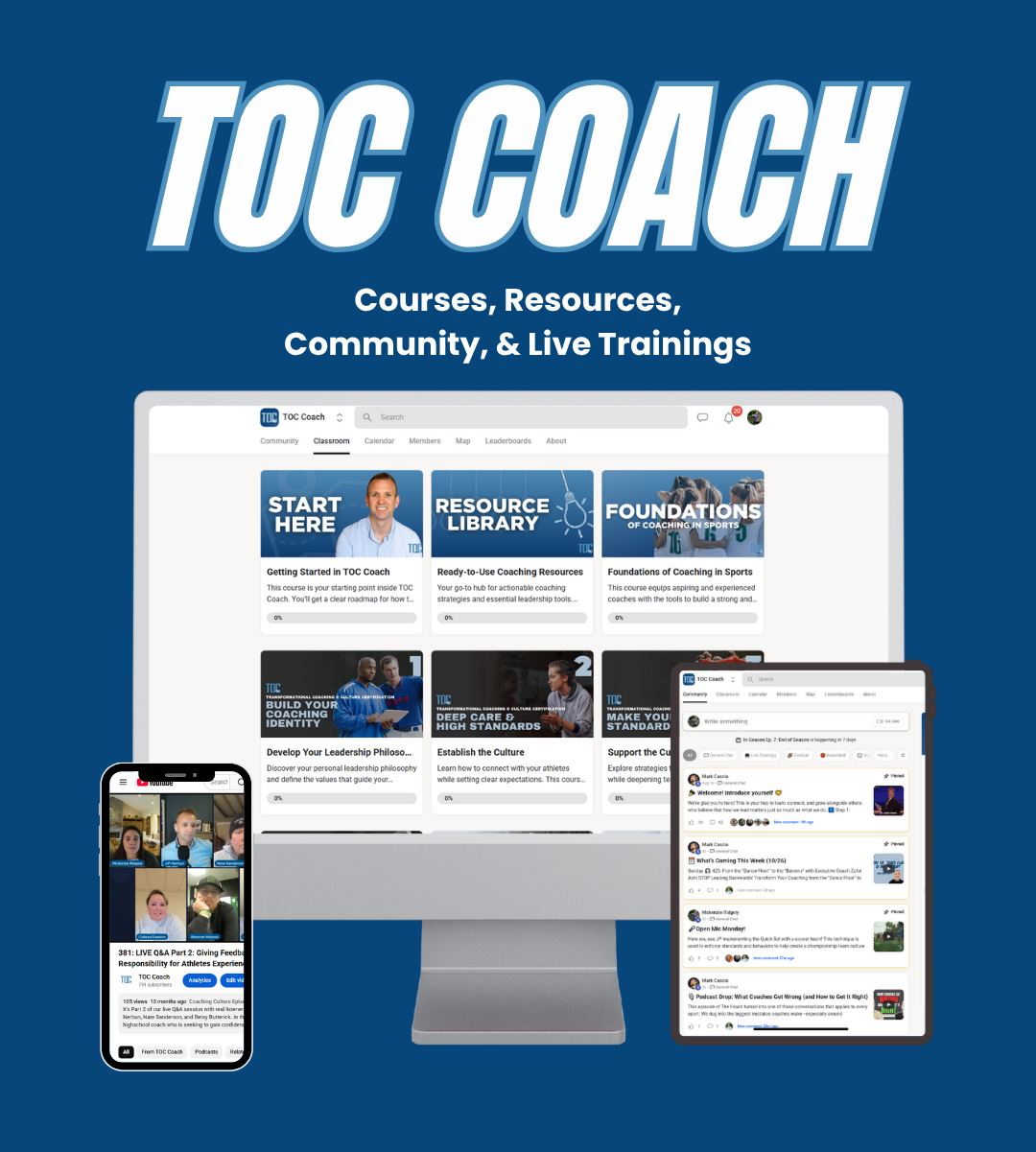The Real Problem with Your Team’s Culture? Look in the Mirror.

It’s a Saturday morning. Practice is over. As a high school basketball coach, I’m walking towards the locker room, exhausted, when a parent approaches. "Coach, do you have a few minutes to talk?" My stomach drops. Every coach knows this feeling. It only gets worse when he tells his son to wait in the car.
We sit in the empty locker room, an awkward silence hanging between us. I brace myself for the usual grievance – playing time, a rough call. But what unfolds is far more painful, and completely different. This wasn't just any parent; this was someone I deeply respected, whose son I’d coached for years, and who had always made an effort to build a relationship with me.
The father calmly looked past me, pointing to John Wooden’s Pyramid of Success, my leadership playbook for a decade, plastered on the wall. Like a judge delivering a verdict, he said, “Coach, you claim to value hard work, a positive attitude, self-discipline, and respect for others. Yet, the players you put in games don’t seem to mirror many of these qualities. Laziness, selfishness, and a lack of discipline appear tolerated in your program.”
Then came the gut punch. “More importantly,” he continued, “when I see how you handle yourself in the heat of a game, I don’t see you modeling the values you preach. Swearing. Yelling at referees. Poor body language. Harshly criticizing your players. You appear impulsive and out of control. These are the things I see, what the other parents see, and most importantly, what the players see.”
I was speechless, caught red-handed. He hadn’t come to complain about playing time; he had exposed my lack of integrity. I felt totally exposed, almost naked. The truth hit hard: our team culture was weak, and my impact was lacking because his words mirrored what I secretly knew. All I could do was thank him for his honesty.
Weeks later, after another loss to our cross-town rival, my athletic director approached me. I wasn’t worried; we had a great relationship. But perhaps I should have been. We sat in the empty bleachers. He asked about the game. Frustrated, I complained about our star player’s lack of mental toughness, how his constant arguments with referees and bad shots cost us late in the game.
My athletic director, in the kindest but most direct way, shared his observations. “Watching yesterday’s game, I noticed how calm their coach was. At timeouts, he steadied the ship. On the sidelines, he was poised, clear, giving precise directions. It’s a very different approach to the one you took—I see you getting on the referees, angry and yelling during timeouts, pacing up and down the sidelines. I wonder if that’s what your team needs.” Another punch. I had no reply. I blamed my players and the culture, but I was the guilty one.
These honest conversations, however painful, illuminated the core issue: the biggest problem with my team’s culture was me. If I wanted to change the team, I needed to change. But I wasn’t sure how.
There was no one thing that changed it for me— and I am still a massive work in progress. Over the next few years I would devour books, attended clinics, watched videos, searching for answers on leadership and culture. It wasn’t a solo journey either, I hired a coach who challenged me. I remember early on in my journey with my coach being asked a question that stopped me cold: "JP, what’s it like to be coached by you?”
He knew little about me, yet his question cut straight through my defenses. A profound realization dawned: instead of just figuring out what to change in my methods, I needed to change myself. I began to ask: Who do I need to become to be more effective as a leader?
That mentorship taught me new coaching techniques, how to establish and enforce standards. But most importantly, it challenged me to continuously ask three powerful questions:
- How was I contributing to the problems my team was facing?
- What is most important for me to change in myself to have the impact on my team that I desire?
- And the most crucial question of all: Who do I want to become in this next stage of life?
These questions set me on a path I’m still on today—one where I routinely reflect on who I am, who I want to become, and then work intentionally to become that person. Here’s what I’ve learned about culture change in the last 10 years since I started this journey: the real work of culture starts not with the team, but with the leader in the mirror.



